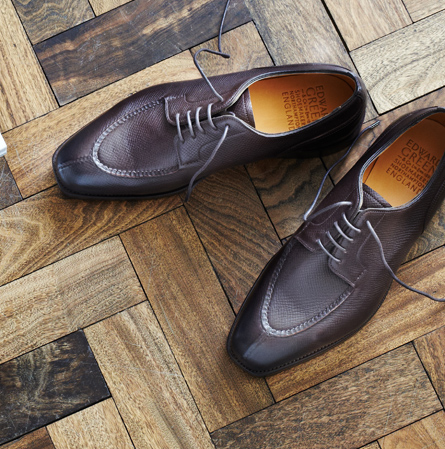So what happened next?
The next time I was down in Somerset, I went in - I fell in love with the place. I walked through the doors and I heard the sound of Great Britain making stuff. Then you see the date above the door - which is really interesting. Then, you do a bit of research and you discover that they're doing nothing with their history. It just showed you that a bit of love and some marketing for a really fabulous product really, really helps.
So how did the Dragons’ Den’s Deborah Meaden come into the equation?
Oh, I've known Deborah for a very long time – since teenagers, really – as she’s also from Somerset. For about 15 years we were looking to do something together. We had some business relationships before with a skateboarding brand but always wanted to do something bigger. So, I rang her up, told her to come and take a look at it. We then invested in the business and later ended up owning it!
Brilliant. So, how were those early years then? Presumably pretty challenging?
We had two years of saving the place, ensuring that there was a succession and putting in a degree of customer service. We put in a small apprenticeship scheme in there and we wanted to make everybody happy, to be honest. I then stood back and thought 'what is this?'. We can't just make a loss-making cloth. We really needed to drill down into who our customers are and build relationships with them all. I then started to build a commercial business and build the brand once we knew we could service the customers by delivering on time and communicate with them properly.














